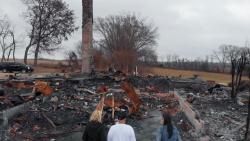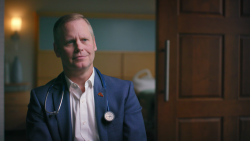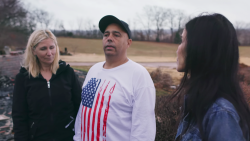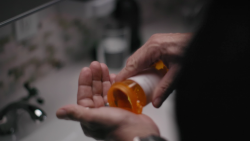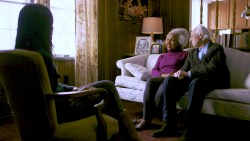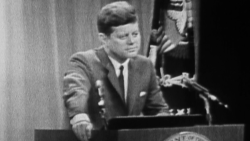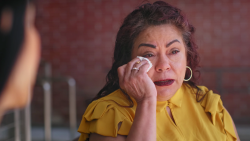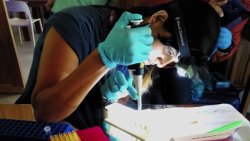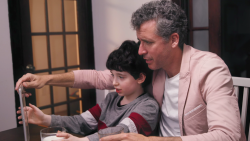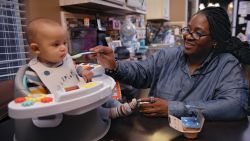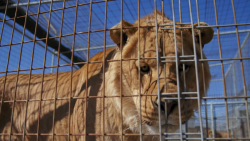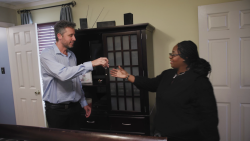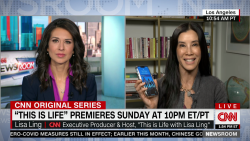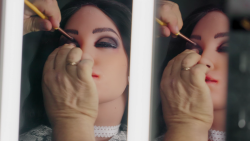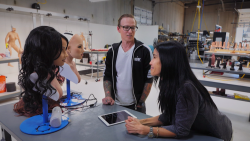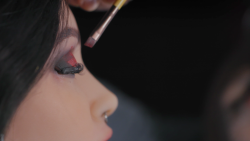For more on this story, watch “This Is Life with Lisa Ling” Sunday at 10 p.m. ET/PT. Find past episodes on CNNgo
It was just over a year ago that we shot part of our “Under The Gun” episode for “This Is Life” in Chicago’s inner city.
Our show focuses on the increasing number of Americans who are becoming part of a club that no one wants to join: The survivors of gun violence and the families and friends of those killed by guns.
Given the scale of the carnage, mass shootings often capture the attention of the news and public discourse. But in Chicago in 2016, a person was shot an average of every two hours. And in 2020, as the coronavirus pandemic and nationwide protests for social justice commanded headlines, the number of murders in Chicago has soared.
According to the Chicago Tribune, there have been more than 700 homicides in the city this year, mostly due to gun violence. It’s a grim total crossed only once since 1998, and that was in 2016. By September alone, six children under the age of 10 were killed by gunfire as they sat in cars and played in yards.
“Gun violence is every bit a public health crisis as Covid-19,” Chicago Mayor Lori Lightfoot tweeted in August, after a 9-year-old boy was fatally shot on the city’s Near North Side. “How many more families must be torn apart? How many more communities need to be traumatized? How many more children have to die? We’ve had to write these words far too many times just this summer alone.”
In September, Lightfoot released a detailed, multiyear plan to address the crisis, and Chicago Police Department Superintendent David O. Brown has pledged that his officers will partner “directly with residents” as part of “an all-hands-on-deck effort to curb the violence in our communities.”
Yet the ongoing gun violence in Chicago rarely receives the attention given to mass shootings. Last month, I reconnected with three Chicagoans whom we feature in tonight’s episode to hear why they think the situation there has reached explosive levels: Father Michael Pfleger of Saint Sabina Church, and activists Pam and Tom Bosley. The Bosleys’ 18-year-old son Terrell was shot and killed outside of a church in 2006; his death remains unsolved.
The trio had much to say about the disturbing increase in murders, the growing call to “defund the police” and what can be done to reduce gun violence in inner cities.
Lisa Ling: What has it been like on the South Side of Chicago, where you are, since Covid-19 struck?
Father Pfleger: Well, it has exposed the inequalities of communities that already had high poverty, high unemployment, a lack of access to healthcare and healthy food – and these are the folks who are most vulnerable to the disease.
I have been here 45 years, Lisa, and I’ve never seen it worse than it is right now. (At my church) we are feeding over 2,000 people a week. We have more people coming to us for help or a place to stay — we’ve given out 250 coats in the last week.
Covid has taken a bad situation and made it worse, so our communities are more in need than ever before. I was screaming and yelling for a long time because the first death from Covid-19 in the city of Chicago was about five blocks from here, yet it took months to get a testing site in this area. There are whole communities on ventilators!
So what are we going to do? All I keep hearing from federal, state, municipal governments (is that) everybody is broke now because of Covid. But, something’s gotta change. Shame on us if we see this and we don’t do something about it. If we don’t start equalizing these neighborhoods, I think the unrest we’ve seen this year is only the tip of the iceberg. People are angry, depressed; I get two to three people a week coming here or calling saying they are suicidal — primarily in the 18-28 age range.
Pam Bosley: Before the pandemic, we were already living in abandonment. We had a failing education system, a failing health system, decrepit buildings, the food desert, and so many other failures. We were already divided; we had a segregated city and then Covid pulled the band-aid off all the things that we’ve been lacking.
They say Covid hit hard because of the underlying health issues, but the hospitals in our communities (also) don’t have the proper resources. So we started losing so many people. Not only are we losing people to violence in the city of Chicago, but we are dealing with people dying from Covid. My grandfather was one of them.
Tom Bosley: With Covid, people were even more stressed out and on edge. And then you have people losing jobs. Personally, I know several of the young people in the organization that I run, Strong Futures, who lost their jobs when the pandemic hit and that just put more stress on them.
Lisa: There was an absolute explosion of gun violence this past summer. Why has it gotten so bad and what role has Covid played in it?
Father Pfleger: The more hopeless and desperate people become, the more apt they will be to act it out. We’ve seen this huge explosion of people (across America) buying guns, so I think that has trickled down to other communities too. I mean, everybody has a gun now. I’ve had people who have never owned a gun tell me, “Brother Mike, I know how you feel about them, but you know, the reality is that I gotta protect myself and if there is going to be a race war, I gotta be ready.” And so the gun proliferation has gone on steroids – and I think on top of that, where you have communities where you have more trauma, more depression, more frustration, it’s been acted out more in gun violence.

Pam: I’ve been dealing with gun violence issues since 2006, when my son Terrell was killed. I’m an activist; I’m always in the streets trying to help moms and dads. This is the first year that it seems like every day I’m talking to another mom about having to bury a child. There were so many kids under 10 years old. There was one child who was killed and the parents had to have a press conference to defend their character because people assumed that the mother had gang ties. The mother was coming from the laundromat and somebody shot into the car and shot her baby in the chest. That’s what happens in our community; when people get shot, we’re always having to defend ourselves. “Was it gang-related, was it a drug deal gone bad?” It’s just wrong.
Lisa: What is it going to take to reduce the violence in the streets of Chicago?
Father Pfleger: I’ve had conversations with people recently who tell me about how there are so many boarded up buildings in downtown Chicago. I say, “Welcome to my neighborhood.” They say, “There’s violence coming downtown.” I say, “Welcome to my neighborhood.” They ask, “How do we stop the violence downtown.” And I say, “You should have stopped it in the communities.”
We have to understand that when there’s nothing left in these communities, people are going to go downtown, they’re going to the North Shore. The gun violence is happening in places that people thought it would never get to — but it is going to get there. I keep screaming and yelling, “If you want a safer Chicago — not just a safer downtown, but a safer Chicago – then we’ve got to make sure that all of Chicago is safe!” When neighborhoods on the South Side are doing well, downtown will do well. But violence travels — we’ve tried to say that it doesn’t stay in one place.
Tom: I think a combination of resources. We now have a mental health therapist who works with our young people, and what we’ve discovered is that so many of them have experienced trauma and they have mental health issues that have never been addressed. Now they are beginning to get counseling, and I think more resources for things like that would help so much in light of Covid. And it’s important to be able to give people a sense of hope. There are a lot of organizations that are doing great things; they don’t get a lot of attention, but it has a tremendous effect on the minds of young people.
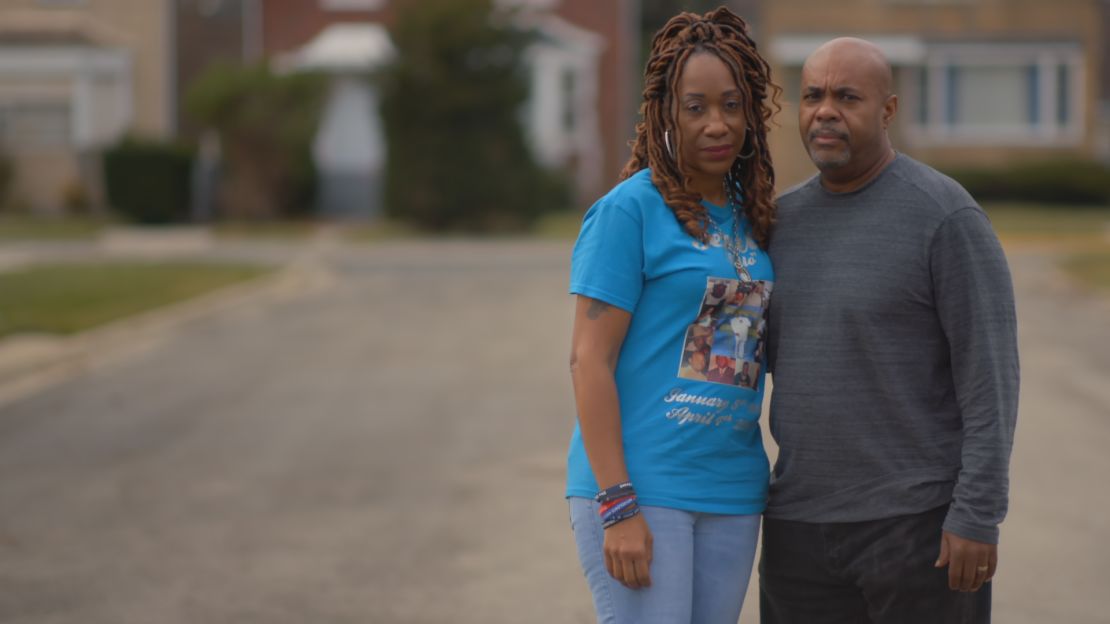
Lisa: There is a lot of talk lately of defunding the police. Opponents of the idea of it will say, “Look how bad violence is in Chicago. What happens if you defund the police?”
Father Pfleger: My thing with the police is, look at the police department budget. It’s a $1.7 billion budget. We are spending all of this money, all of this overtime and we’ve had the worst violence in Chicago over the past couple of years. So obviously, it’s not working. Couldn’t this money be better spent doing something else?
However, I gotta say, I am not for getting crumbs. The whole $1.7 billion wouldn’t be enough to do what needs to be done here. The mayor has $6 million for street intervention. Lisa, that’s insulting. I love (Chicago Mayor) Lori (Lightfoot), and have supported her, but that is nothing. I don’t want some piece of the budget to be cut out and have crumbs thrown here and there. Dr. King said it didn’t cost America anything to integrate buses, to stop segregation. But to equalize communities that have been neglected and abandoned for decades is going to cost Americans – (and today that’s) trillions.
With the 16, 17 neighborhoods in Chicago that have been neglected for ages — where the most violence is taking place — are we committed enough, courageous enough to put in the resources, from the federal government on down, to finally equal this playing field? What the pandemic is saying is that now is the time to do it.
Pam: Law enforcement accounts for nearly 40% of the city’s operational budget. The city spent $33 million on police in schools last year but (at the time) could not provide more counselors or nurses.
And they use millions for misconduct and settlements. We don’t want to abolish the police department, we just want them to redirect the funds to community services: after school programs, job training, healthcare, violence prevention programs, housing, economic development, counseling.
If you look around our community, there are abandoned buildings everywhere — there’s no hope. We want people to be able to feel better about themselves and their communities. What they’ve been doing for years and years is not working. So we want them to redirect the funds and invest in the communities.
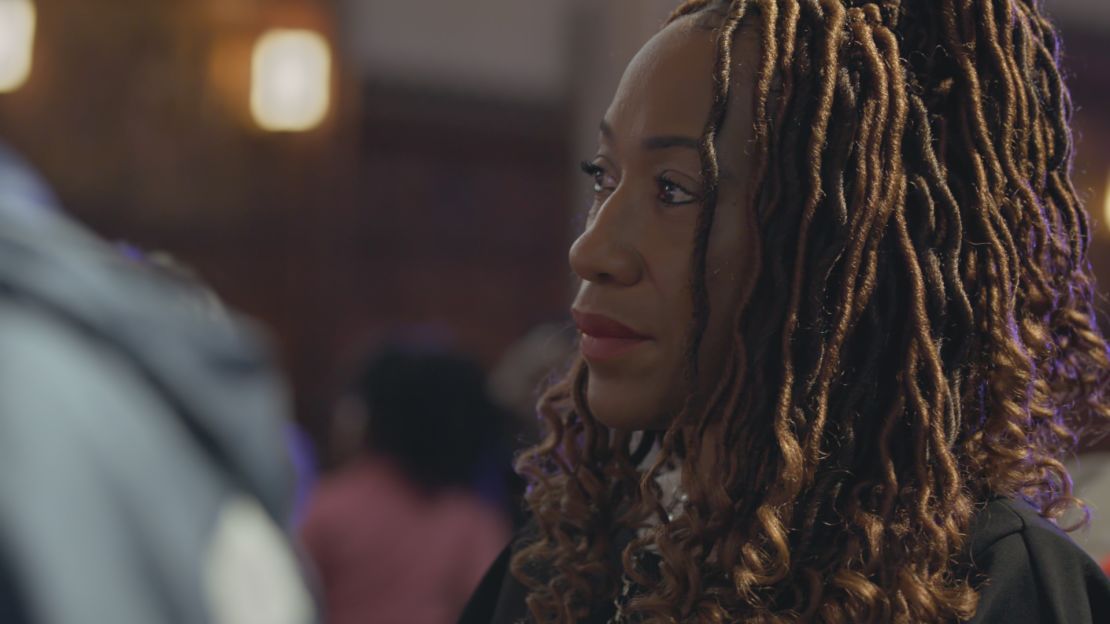
Tom: People need to become educated about what “defunding” actually means. When you first hear it, looking from the outside in, you think, “Oh they’re going to take money away from the police department,” but that’s not what it means. It means reallocating funds so that you can be more effective. People need to understand what it really means, and that will go a long way toward the healing process between both sides.
We need to sit down and look at the strategies that police departments are implementing now — things that work, things that don’t work – and then sit down with community leaders and come up with a strategy that looks at how those funds can be reallocated to actually help the mission of the police department. They need to use those funds in a more strategic way with some community-based programs. We don’t want to get rid of the police at all, but some of the things that they have been doing have not been successful.
Lisa: If those investments are made that you’re asking for, how do you think that would impact gun violence?
Father Pfleger: I think it will majorly reduce it. If we give people alternatives in these neighborhoods that helps reduce gun violence.
And we are also still very poor in Chicago at solving crimes. We have such a laundry list of unsolved homicides.
Lisa: Some law enforcement officers say the reason why cases don’t get solved is because people are afraid of being seen as snitches, so no one comes forward.
Pam: In order for people to want to talk, you have to have a relationship. And the relationship between the police and people of color in our neighborhoods isn’t good. You have to build a relationship with people in the community if you want people to talk.
Father Pfleger: We have to do better at it. If people know that there is a 95% chance of getting caught and going to jail if I shoot someone — that will reduce gun violence. If we close loopholes in gun sales, if we ban assault weapons and have universal background checks, that will help.
Chicago has strong gun laws. But if we know that guns that end up here are from Indiana and Mississippi — if we know that, let’s send federal agents to arrest the traffickers bringing guns into this state. We know where the guns are coming from, why the hell aren’t we doing something about it? This has to be done federally.
A big buzzword right now is “intervention.” That’s great but after that, then what? People still need to eat, people still need jobs. People have to live somewhere. There has to be opportunity.
If we do these things, I believe with all of my heart that we can bring gun violence down significantly in this city. It has to be a comprehensive culture.



